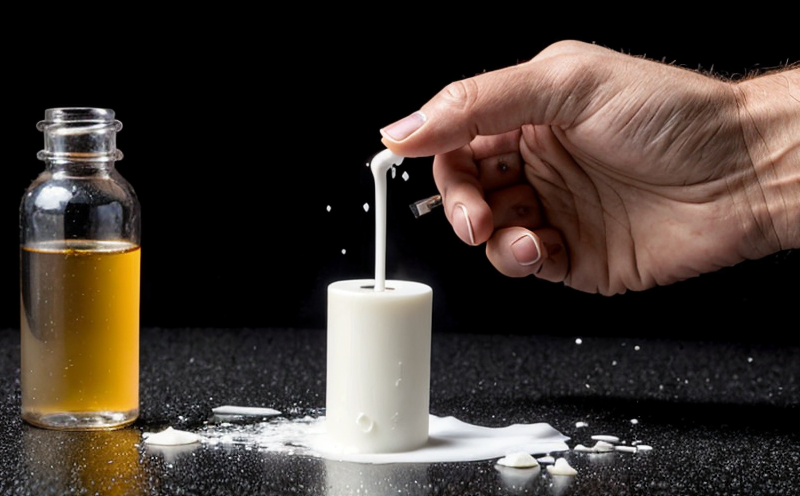USP Dissolution Apparatus 7 Reciprocating Holder Testing
The United States Pharmacopeia (USP) Dissolution Test is a critical quality assurance method used in pharmaceutical development and manufacturing. This test evaluates the rate at which active ingredients from oral dosage forms dissolve into a solvent over time, ensuring that products meet their intended dissolution specifications. The Reciprocating Holder Apparatus 7, as specified by USP [1], is specifically designed to simulate the in-vitro dissolution behavior of tablets and pellets.
This method plays an indispensable role in the development, optimization, and quality assurance stages of pharmaceutical products. It helps in assessing the bioavailability and bioequivalence of drug formulations, ensuring that medications deliver their active ingredients effectively within acceptable timeframes. The Reciprocating Holder Apparatus 7 is particularly useful for testing matrix tablets, where dissolution rates can be highly variable.
The test involves placing a specified amount of the pharmaceutical sample in a dissolution medium (usually water) and subjecting it to agitation or reciprocation. The medium temperature and pH are carefully controlled, often simulating physiological conditions. Sensors detect the rate at which the drug dissolves into the surrounding solution. This data is then analyzed to ensure that the product meets USP [1] specifications for dissolution time.
The Reciprocating Holder Apparatus 7 provides a more accurate representation of the dissolution process by simulating the mechanical stress encountered during oral administration, which can significantly affect drug release. This makes it an essential tool in ensuring that pharmaceutical products perform as expected under real-world conditions.
Our laboratory adheres strictly to USP guidelines and has extensive experience in conducting Dissolution Testing using the Reciprocating Holder Apparatus 7. Our team of experts ensures that all tests are conducted with precision, delivering accurate and reliable results. We employ state-of-the-art equipment and adhere to strict quality control measures, ensuring consistent and reproducible test outcomes.
- Customer Impact: By providing precise dissolution data, our testing enhances the safety and efficacy of pharmaceutical products, contributing to better patient care.
- Satisfaction Assurance: Our clients receive timely, accurate reports that help in making informed decisions about product development and manufacturing processes. This ensures compliance with regulatory standards and facilitates smoother market entry for new formulations.
In summary, the USP Dissolution Apparatus 7 Reciprocating Holder Testing is a cornerstone of pharmaceutical quality assurance. It provides critical insights into drug dissolution rates, which are essential for ensuring that products meet stringent regulatory requirements and deliver consistent therapeutic effects.
Industry Applications
The USP Dissolution Apparatus 7 Reciprocating Holder Testing finds extensive applications across the pharmaceutical industry. It is particularly relevant in:
- Development: Identifying optimal formulation parameters and understanding how different factors affect drug release.
- Manufacturing: Ensuring that production processes consistently produce tablets or pellets that meet dissolution specifications.
- Quality Assurance: Regularly assessing product performance to ensure consistency and compliance with regulatory standards.
- Compliance: Meeting USP [1] requirements for drug development and manufacturing, which is crucial for obtaining regulatory approvals.
The Reciprocating Holder Apparatus 7 also plays a vital role in the lifecycle management of pharmaceutical products. It helps in identifying potential issues early in the development process, allowing for timely adjustments to formulations or production processes. This ensures that products are safe and effective throughout their market lifespan.
Quality and Reliability Assurance
At our laboratory, we take pride in delivering high-quality Dissolution Testing services using the USP Reciprocating Holder Apparatus 7. Our commitment to excellence is reflected in every aspect of our testing process:
- Precision Instruments: We use only the most advanced and reliable equipment, ensuring accurate and precise measurements.
- Experienced Staff: Our team comprises highly skilled professionals with extensive experience in pharmaceutical testing. They are trained to handle complex samples and interpret results accurately.
- Compliance: All tests are conducted strictly in accordance with USP [1], ensuring that our clients receive reports that meet regulatory standards.
We also offer additional services such as method validation, stability testing, and comparative bioavailability studies. These complementary services further enhance the comprehensive nature of our quality assurance offerings. Our goal is to provide complete solutions that support our clients' needs across all stages of product development and manufacturing.
By leveraging our expertise and state-of-the-art facilities, we ensure that every test conducted meets the highest standards of reliability and accuracy. This commitment to quality is what sets us apart in the pharmaceutical testing industry.





